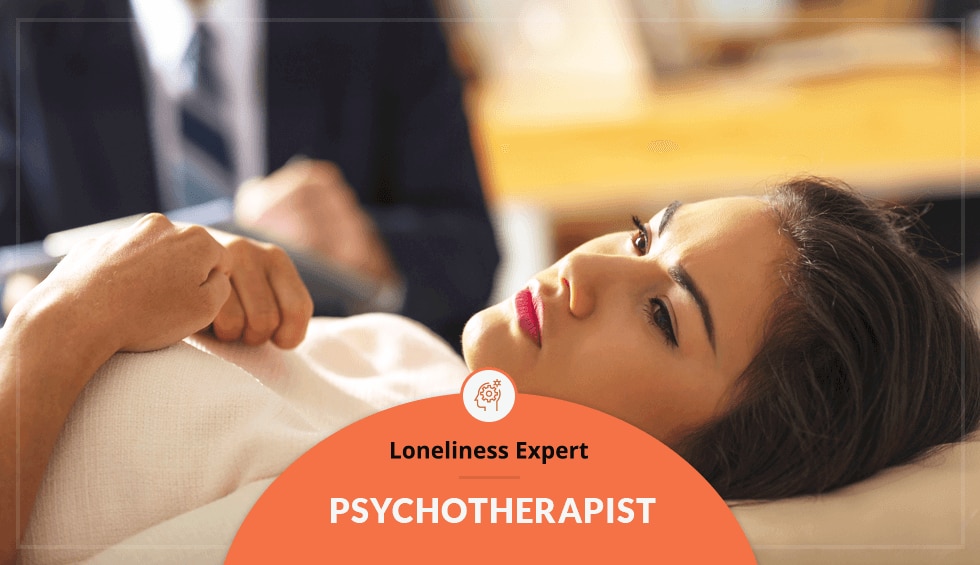
Of all the human emotions on the spectrum, loneliness can be one of the most difficult.
It is a universal feeling, experienced by all ages and nationalities from time to time. Yet despite its prevalence, it can seem as if you are the only one in the world who feels this way, while you are experiencing it.
While solitude offers serenity and peace, loneliness is a cousin from the other side of the tracks; it brings isolation, sadness, feelings of rejection and negative self-evaluation.
Loneliness even transcends the human experience. Did you know that fruit flies get lonely, too? Seriously, they do. Fruit flies have proven difficult to interview, but in studies of isolated fruit flies, they had poorer health and died sooner than flies in the "group" that were studied, indicating that the need for togetherness is inherent in living beings.
In humans, physiological symptoms of loneliness can include acceleration of cardiovascular changes that can result in heart disease, increased resting blood pressure and decrease in immune functioning, challenges with learning and memory, decreased quality of sleep and increase in the stress hormone cortisol.
Loneliness and isolation can also result in some unpleasant internal dialogue, particularly if the loneliness lingers for too long. Situational loneliness resolves itself after some time; for example, moving to a new area may invoke some feelings of loneliness that will fade when new acquaintances are made. Developmental loneliness is felt when we are finding a balance between intimate relationships and alone time and generally resolves fairly quickly as well. It is chronic internal loneliness that involves a decrease in self-esteem and the belief that one is socially inept or unlikable (warwick.ac.uk/services). Internal loneliness can be more pervasive and self-perpetuating. Unresolved internal loneliness can cause us to feel disconnected from our surroundings, and alone even in the presence of others. It can result in feelings of abandonment, feeling alone in the world, a decrease in willingness to assert oneself and even suicidal thoughts. Feelings of loneliness in early life can result in failure to connect with peers, which in turn can result in adolescents veering toward outcast status and dropping out of school, and/or engaging in delinquent behaviors (psychologytoday.com). Chronic loneliness in adults can manifest in substance abuse, depression and an increase in medical problems.

So what does loneliness mean? It means our interactional patterns with others are out of balance. We can learn from our feelings of loneliness. In our day to day lives, we are familiar with pangs of hunger when we haven't eaten for awhile, and we know that this feeling is our cue to eat. Pangs of loneliness are also cues that indicate we need to reach out and become involved with others. If we have been immersed in our loneliness for awhile, we may feel avoidant of others, and in order to feel better, it is important to push through the initial discomfort of being in social situations, knowing that it will get better after we reestablish the balance and feel connected with others.
When you feel alone it is important to ask yourself what is contributing to your loneliness. Studies of loneliness by Cacioppo and Patrick in 2008 indicated that there are three major factors impacting our perceptions of loneliness. These include level of vulnerability to social disconnection, ability to self-regulate emotions related to isolation, and mental representation and expectation of others, including ability to use reason regarding others' motives (blogs.psychcentral.com).
Loneliness is a tricky emotion, as it can sometimes erode our self-esteem, convincing us that we are unacceptable, or that others are harsh or uncaring. Exploring underlying beliefs about ourselves and others can teach us where our biases lie and whether there are other aspects to our loneliness, such as difficulty in relationship with self, or components of shame about who we are. Sometimes we can become so enmeshed with a particular "story" about ourselves that we subconsciously look for supporting evidence everywhere as if we are building a case against ourselves in some terrible court of negative self-worth.

It is important to catch ourselves when we get stuck in that negative self-talk, as it only serves to perpetuate loneliness. Try asking yourself the following questions when you feel lonely:
1. Am I feeling badly about myself?
2. What (if any) thoughts am I having about myself that make me feel sad or uncomfortable? Are my thoughts about myself accurate, when I take the emotion out of it?
Is there another way to look at myself that is more compassionate?
3. What (if any) thoughts about others am I having that make me feel sad or uncomfortable? Are my thoughts about others accurate, when I take the emotion out of it? Is there a different way to look at others that is more compassionate?
4. Is there another way to look at my situation overall?
5. What do I need right now?
6. What do I like about myself?
7. What have others liked about me in the past?
8. What am I good at?
9. What am I curious about in this world?
10. How can I use my skills, wonder, and positive qualities to get involved with others?
Moving beyond loneliness requires self-compassion and some willingness to be vulnerable. In order to re-establish connection with others, we may have to be willing to take a risk, such as picking up the phone or contacting an old friend. If we are struggling with low self-esteem and challenges with internal loneliness, reaching out can be particularly difficult, but that makes it all the more crucial.
Consider these options for breaking through loneliness and improving your quality of life:
1. Create a list of your hobbies, interests and things you'd like to learn more about. Consider this list a good starting point for finding community activities, classes, or local groups or clubs to join that encompass these interests. The benefit of joining a group is the lack of social pressure; you are all there because of your passion for the task at hand (i.e., gardening, writing, hikes) and it is a way to connect with others in a setting that may result in long-term friendships.
2. Reinvest in your alone time. As counterintuitive as it sounds in dealing with loneliness, learning to embrace alone time again can be a useful process. Take yourself out on a date. Remember the things you enjoy doing alone, and go do them. Do you like to walk on the beach? Do you like Thai food? Is there a movie you have been wanting to see? Making plans with ourselves can be rewarding if we get back in touch with the things that bring us joy.
3. Start a gratitude list. When we are lonely or focused on what is missing from our lives, it can start to become all encompassing. Practice shifting your focus from what is missing to what is good about your life. Maybe you are thankful for having food on your table or having good health. Once you get started, it will become easier to identify more aspects of your life that are positive.
4. Call an old friend. Maybe one of your old friends that you haven't spoken to in awhile is also feeling lonely and disconnected from others. Even if you haven't spoken in years, it may surprise you how easy it is to pick back up where you left off in your interactions.
If you're not sure what to say, starting with a simple, "it's been a long time, how have you been?" is perfectly acceptable. If a call seems too difficult initially, perhaps starting with a card or email may feel like a safer option.
5. If you are struggling with chronic loneliness, consider talking to a therapist or counselor. Sometimes talking with someone who is objective, professional and compassionate is helpful in untangling negative self-worth or determining some of the underlying sources of loneliness i n your life. Therapy is also a safe, confidential place to process your thoughts and feelings without worry of your information being shared with others.

Loneliness is a painful emotion but it can be instructive. If we listen to the message of loneliness and the cues it gives, we can begin to identify its source and explore options for improving the quality of life.
If loneliness has become overwhelming and you have been thinking about harming yourself or ending your life, please reach out to your nearest crisis center or emergency room. The National Suicide Prevention Lifeline number is 1‑800‑273‑TALK (8255) and it is available for support 24 hours per day, 7 days per week. When struggling with loneliness, it is difficult to remember that it is a temporary emotion. Our emotional states are meant to fluctuate throughout the day. Though we are bound to respond to the circumstances around us, we also have some power in whether we stay immersed in our feelings or take action to improve our quality of life.
Sources:
Loneliness. (n.d.). In the University of Warwick website. Retrieved from https://www.2.warwick.ac.uk/services
Dealing with Loneliness. (n.d.). In Barends Psychology Practice website. Retrieved from https://www.barendspsychology.com/dealing-with-loneliness
Booker, K. (2016, Sept 15). Study: Effects of Loneliness Mimic Aging Process, Boost Heart Disease Risk. Retrieved from https://www.news.cornell.edu/stories/2012/04/effects-loneliness-mimic-aging-process
Gammon, K. (2010, Mar 2). Why Loneliness Can Be Deadly. Retrieved from https://livescience.com/18800-loneliness-health-problems.html
Marano, H.E. (2003, July 1). The Dangers of Loneliness Retrieved from https://www.psychologytoday.com/articles/200307/the-dangers-loneliness
Hull, K. Ph.D. (2012, Mar). The Three Factors of Loneliness. Retrieved from https://blogs.psychcentral.com/emotionally-sensitive/2012/03/loneliness
Suicide Prevention Lifeline. (n.d.). Retrieved from https://suicidepreventionlifeline.org/